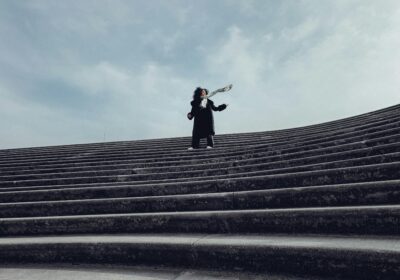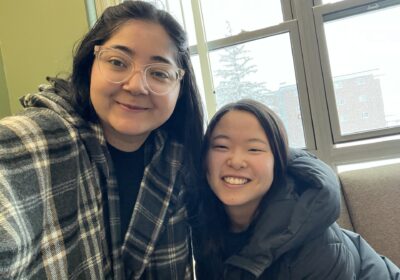I am learning more outside the classroom
I have a lot on my plate right now, and I don’t mean a mountain of vegetables (although that certainly wouldn’t hurt us college kids), but now I sound too much like your parents.
At the beginning of my time here at Castleton, President Dave Wolk told us that we should treat our education like a job; partly because we are all adults and need to be professional, but also because we were expected to push 40 hours a week. That’s a lot to take in your freshmen year. I was used to finishing most of — if not all — of my coursework at school in high school. My free time was astronomical in high school.
I wish I had that leisure now.
This semester I’m tackling 18.5 credits with an internship in my field, numerous on-campus jobs, working as the Web Editor and a page designer for The Spartan (while also writing the occasional piece or two, wink wink) on top of being booked for portraits, headshots, engagement sessions, weddings, and maternity photos all the way through December.
Approximately 60-80 hours later, this is my week.
Because of the amount of outside-the-classroom work, my motivation has waned in the classroom while I divert all of my energy and drive to real-world work experience. That’s not to say that classroom education is not important, rather this semester I’m learning far more outside of the classroom. And I think every student should run into this situation prior to graduating; not just for the work experience, but for the pre-graduation mental preparation.
We’re on our own after we graduate. We don’t get the luxury of taking on internships or apprenticeships that pay little to nothing after we graduate. Of course, these options ARE available, but at the cost of having to work full-time elsewhere in a position or field we aren’t as passionate about.
At the end of the day, our degree gets us the interview, but having work experience and the ability to communicate what we have done in these positions lands us the job.
My internship this semester is with B. Farnum Photography, and I couldn’t have found a more fitting professional mentor than Brian. While I have the knowledge and ability to rival other professional photographers in the area, I do not have a great understanding of the business-marketing side of the industry. I do pick up small bits of useful information during a session; although I often pick up the most simply discussing how various photographers run their business.
One idea that should be mentioned is that of classroom tests and quizzes vs. out-in-the-field work. You could say that you never have to take a sit-down test out in the workforce, but to some degree, you are constantly being presented with quizzes and tests in the shape of work.
For example, for photographers, knowing the various angles and strength of off-camera lighting is crucial to achieving the best shot possible. This is a skill that is relatively repetitive, but changes from location to location; in other words, you are quizzed constantly on your ability to remember crucial bits of information regarding your equipment.
The “tests” come in the form of scenarios that you are not prepared for, or when you encounter something that you aren’t used to dealing with. These are the types of things that we have to study for, and while it may not be the most enjoyable thing to do in the classroom, it is relatable to work you will be doing post graduation.
– Martin VanBuren III






